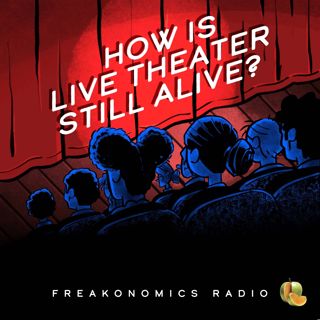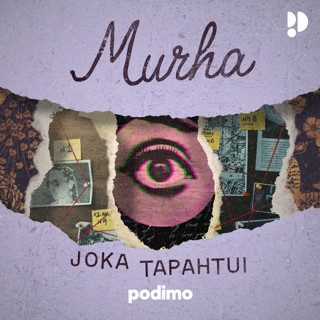
How to Succeed at Failing, Part 2: Life and Death (Update)
In medicine, failure can be catastrophic. It can also produce discoveries that save millions of lives. Tales from the front line, the lab, and the I.T. department. (Part two of a four-part series.) SOURCES:Amy Edmondson, professor of leadership management at Harvard Business School.Carole Hemmelgarn, co-founder of Patients for Patient Safety U.S. and director of the Clinical Quality, Safety & Leadership Master’s program at Georgetown University.Gary Klein, cognitive psychologist and pioneer in the field of naturalistic decision making.Robert Langer, institute professor and head of the Langer Lab at the Massachusetts Institute of Technology.John Van Reenen, professor at the London School of Economics. RESOURCES:Right Kind of Wrong: The Science of Failing Well, by Amy Edmondson (2023).“Reconsidering the Application of Systems Thinking in Healthcare: The RaDonda Vaught Case,” by Connor Lusk, Elise DeForest, Gabriel Segarra, David M. Neyens, James H. Abernathy III, and Ken Catchpole (British Journal of Anaesthesia, 2022)."Estimates of preventable hospital deaths are too high, new study shows," by Bill Hathaway (Yale News, 2020).“Dispelling the Myth That Organizations Learn From Failure,” by Jeffrey Ray (SSRN, 2016).“A New, Evidence-Based Estimate of Patient Harms Associated With Hospital Care,” by John T. James (Journal of Patient Safety, 2013).To Err is Human: Building a Safer Health System, by the National Academy of Sciences (1999).“Polymers for the Sustained Release of Proteins and Other Macromolecules,” by Robert Langer and Judah Folkman (Nature, 1976).The Innovation and Diffusion Podcast, by John Van Reenen and Ruveyda Gozen. EXTRAS:"The Curious, Brilliant, Vanishing Mr. Feynman," series by Freakonomics Radio (2024).“Will a Covid-19 Vaccine Change the Future of Medical Research?” by Freakonomics Radio (2020).“Bad Medicine, Part 3: Death by Diagnosis,” by Freakonomics Radio (2016).
14 Touko 53min

How to Succeed at Failing, Part 1: The Chain of Events (Update)
We tend to think of tragedies as a single terrible moment, rather than the result of multiple bad decisions. Can this pattern be reversed? We try — with stories about wildfires, school shootings, and love. (Part one of a four-part series.) SOURCES:Amy Edmondson, professor of leadership management at Harvard Business School.Helen Fisher, former senior research fellow at The Kinsey Institute and former chief science advisor to Match.com.Ed Galea, founding director of the Fire Safety Engineering Group at the University of Greenwich.Gary Klein, cognitive psychologist and pioneer in the field of naturalistic decision making.David Riedman, founder of the K-12 School Shooting Database.Aaron Stark, head cashier at Lowe's and keynote speaker.John Van Reenen, professor at the London School of Economics. RESOURCES:"Ethan Crumbley: Parents of Michigan school gunman sentenced to at least 10 years," by Brandon Drenon (New York Times, 2024).Right Kind of Wrong: The Science of Failing Well, by Amy Edmondson (2023)."How Fire Turned Lahaina Into a Death Trap," by Nicholas Bogel-Burroughs, Serge F. Kovaleski, Shawn Hubler, and Riley Mellen (The New York Times, 2023).The Violence Project: How to Stop a Mass Shooting Epidemic, by Jillian Peterson and James Densley (2021)."I Was Almost A School Shooter," by Aaron Stark (TEDxBoulder, 2018). EXTRAS: "Is Perfectionism Ruining Your Life?" by People I (Mostly) Admire (2023)."Why Did You Marry That Person?" by Freakonomics Radio (2022)."What Do We Really Learn From Failure?" by No Stupid Questions (2021)."How to Fail Like a Pro," by Freakonomics Radio (2019)."Failure Is Your Friend," by Freakonomics Radio (2014).
9 Touko 55min

632. When Did We All Start Watching Documentaries?
It used to be that making documentary films meant taking a vow of poverty (and obscurity). The streaming revolution changed that. Award-winning filmmaker R.J. Cutler talks to Stephen Dubner about capturing Billie Eilish’s musical genius and Martha Stewart’s vulnerability — and why he really, really, really needs to make a film about the New York Mets. SOURCES:R.J. Cutler, filmmaker. RESOURCES:Fight for Glory, documentary (2025).Martha, documentary (2024)."Reality Check: The Boom—or Glut—in Streaming Documentaries Has Sparked a Reckoning Among Filmmakers and Their Subjects," by Reeves Wiedeman (Vulture, 2023)."Inside the Documentary Cash Grab," by Mia Galuppo and Katie Kilkenny (The Hollywood Reporter, 2022).Billie Eilish: The World’s a Little Blurry, documentary (2021). EXTRAS:“Ari Emanuel Is Never Indifferent,” by Freakonomics Radio (2023).
2 Touko 54min

631. Will "3 Summers of Lincoln" Make It to Broadway?
It’s been in development for five years and has at least a year to go. On the eve of its out-of-town debut, the actor playing Lincoln quit. And the producers still need to raise another $15 million to bring the show to New York. There really is no business like show business. (Part three of a three-part series.) SOURCES:Christopher Ashley, artistic director of La Jolla Playhouse.Debby Buchholz, managing director of La Jolla Playhouse.Carmen Cusack, actor.Quentin Earl Darrington, actor.Joe DiPietro, playwright and lyricist.Crystal Monee Hall, composer, singer, actor.Ivan Hernandez, actor.Michael Rushton, professor of arts administration at Indiana University.Jeffrey Seller, Broadway producer.Alan Shorr, Broadway producer.Daniel Watts, writer, choreographer, actor. RESOURCES:3 Summers of Lincoln (2025)."Review: Visceral ‘3 Summers of Lincoln’ is thrilling and thought-provoking," by Pam Kragen (San Diego Union-Tribune, 2025)."What’s Wrong with the Theatre is What’s Wrong With Society," by Michael Rushton (ArtsJournal, 2023)."American Theater Is Imploding Before Our Eyes," by Isaac Butler (New York Times, 2023).The Moral Foundations of Public Funding for the Arts, by Michael Rushton (2023). EXTRAS:“How to Make the Coolest Show on Broadway,” by Freakonomics Radio (2024).“You Can Make a Killing, but Not a Living,” by Freakonomics Radio (2024).
25 Huhti 46min

Is It a Theater Piece or a Psychological Experiment? (Update)
In an episode from 2012, we looked at what Sleep No More and the Stanford Prison Experiment can tell us about who we really are. SOURCES:Felix Barrett, artistic director of Punchdrunk.Steven Levitt, professor of economics at the University of Chicago.Philip Zimbardo, professor emeritus at Stanford University. RESOURCES:“Philip Zimbardo, the psychologist behind the ‘Stanford Prison Experiment,’ dies at 91,” by Melissa De Witte (Stanford Report, 2024).“Debunking the Stanford Prison Experiment,” by Thibault Le Texier (American Psychologist, 2019).“The Lifespan of a Lie,” by Ben Blum (GEN, 2018).Punchdrunk. EXTRAS:“How Is Live Theater Still Alive?” by Freakonomics Radio (2025)."Why Is There So Much Fraud in Academia?" by Freakonomics Radio (2024).
23 Huhti 37min

630. On Broadway, Nobody Knows Nothing
A hit like Hamilton can come from nowhere while a sure bet can lose $20 million in a flash. We speak with some of the biggest producers in the game — Sonia Friedman, Jeffrey Seller, Hal Luftig — and learn that there is only one guarantee: the theater owners always win. (Part two of a three-part series.) SOURCES:Debby Buchholz, managing director of La Jolla Playhouse.Sonia Friedman, Broadway producer.Rocco Landesman, Broadway producer, former owner of Jujamcyn Theaters, former chairman of the National Endowment for the Arts.Hal Luftig, Broadway producer.Luis Miranda Jr., political strategist, founding president of the Hispanic Federation, the Northern Manhattan Arts Alliance, Viva Broadway, and The Public Theater.Michael Rushton, professor of arts administration at Indiana University.Jeffrey Seller, Broadway producer.Richard Winkler, Broadway producer.Stacy Wolf, professor of theater at Princeton University. RESOURCES:Theater Kid: A Broadway Memoir, by Jeffrey Seller (2025).Relentless: My Story of the Latino Spirit That Is Transforming America, by Luis Miranda Jr. (2024).Beyond Broadway: The Pleasure and Promise of Musical Theatre Across America, by Stacy Wolf (2019)."‘Hamilton’ Inc.: The Path to a Billion-Dollar Broadway Show," by Michael Paulson and David Gelles (New York Times, 2016)."On the Performing Arts: The Anatomy of Their Economic Problems," by W.J. Baumol and W.G. Bowen (The American Economic Review, 1965). EXTRAS:“How to Make the Coolest Show on Broadway,” by Freakonomics Radio (2024).“You Can Make a Killing, but Not a Living,” by Freakonomics Radio (2024).
18 Huhti 1h 1min

629. How Is Live Theater Still Alive?
It has become fiendishly expensive to produce, and has more competition than ever. And yet the believers still believe. Why? And does the world really want a new musical about ... Abraham Lincoln?! (Part one of a three-part series.) SOURCES:Christopher Ashley, artistic director of La Jolla Playhouse.Quentin Darrington, actor.Joe DiPietro, playwright and lyricist.Crystal Monee Hall, composer, singer, actor.Rocco Landesman, Broadway producer, former owner of Jujamcyn Theaters, former chairman of the National Endowment for the Arts.Alan Shorr, Broadway producer.Daniel Watts, writer, choreographer, actor.Richard Winkler, Broadway producer. RESOURCES:3 Summers of Lincoln (2025)“Live Performance Theaters in the US - Market Research Report (2014-2029),” by Grace Wood (IBISWorld, 2024). Leadership: In Turbulent Times, by Doris Kearns Goodwin (2018).Big River (1984) EXTRAS:“How to Make the Coolest Show on Broadway,” by Freakonomics Radio (2024).“You Can Make a Killing, but Not a Living,” by Freakonomics Radio (2024).
11 Huhti 59min

Policymaking Is Not a Science — Yet (Update)
Why do so many promising solutions in education, medicine, and criminal justice fail to scale up into great policy? And can a new breed of “implementation scientists” crack the code? SOURCES:Patti Chamberlain, senior research scientist at the Oregon Social Learning Center.John List, professor of economics at the University of Chicago.Lauren Supplee, former deputy chief operating officer at Child Trends.Dana L. Suskind, professor of surgery at the University of Chicago. RESOURCES:“How Can Experiments Play a Greater Role in Public Policy? 12 Proposals from an Economic Model of Scaling,” by Omar Al-Ubaydli, John List, Claire Mackevicius, Min Sok Lee, and Dana Suskind.“The Science of Using Science: Towards an Understanding of the Threats to Scaling Experiments,” by Omar Al-Ubaydli, John List, and Dana Suskind (The Field Experiments Website, 2019).“Inconsistent Device Use in Pediatric Cochlear Implant Users: Prevalence and Risk Factors,” by K.B.Wiseman and A.D. Warner-Czyz (U.S. National Library of Medicine National Institutes of Health, 2018). EXTRAS:"Why Do Most Ideas Fail to Scale?" by Freakonomics Radio (2022)."The Price of Doing Business with John List," by People I (Mostly) Admire (2022).Child Trends.Oregon Social Learning Center.T.M.W. Center for Early Learning and Public Health.The Field Experiments Website.
9 Huhti 45min





















